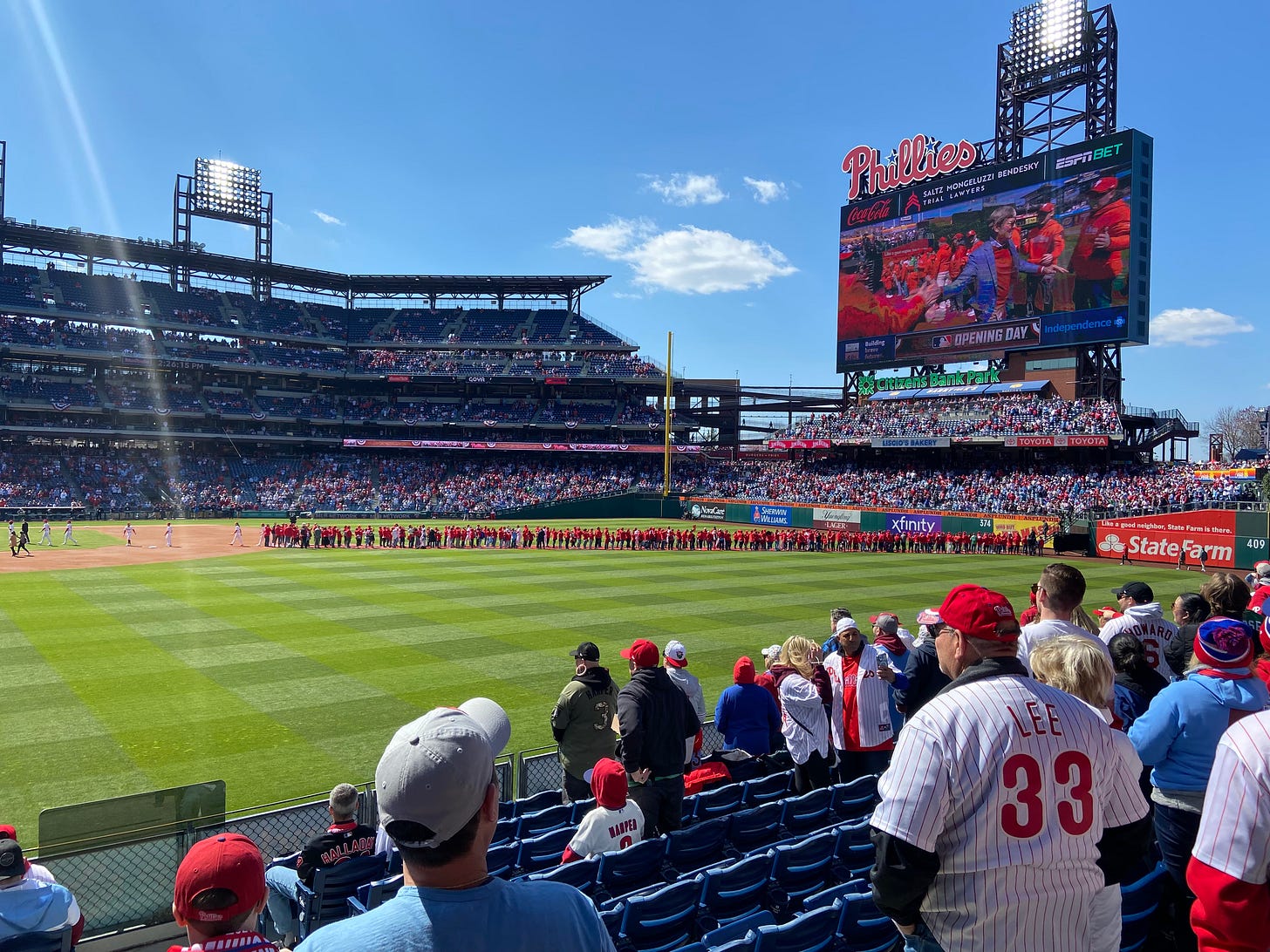The Out in Left Weekly: March 31, 2024
Opening Day, ESPN may fire MLB, and more
Opening day - Philadelphia Phillies
“I don’t think I’ve ever felt more alive than when Brandon Marsh hit that homer off Strider,” I texted a friend after the fifth inning of the Phillies’ Opening Day game against the Atlanta Braves. “Pure bliss. Pure emotion.”
Then the supposed best bullpen in b…
Keep reading with a 7-day free trial
Subscribe to Out in Left to keep reading this post and get 7 days of free access to the full post archives.



